Editor’s Note:
This graphic feature from “The Washington Post” has a direct, fundamental message that is honest, but rarely expressed. We think it will resonate with everyone who has a disability. Don’t let the colorful and bold artwork fool you; the message here is clear – ‘don’t feel sorry for me – please take me as I am.’
I’ve been thinking a lot about bootstrap culture: that American ideal that anyone should be able to “pull themselves up by their bootstraps” and succeed at anything. There’s a toxic root to the notion that we should all ascribe ourselves to impossible tasks. All of this affects life in a disabled body – a body that is constantly observed and assigned both too much expectation and little whatsoever.
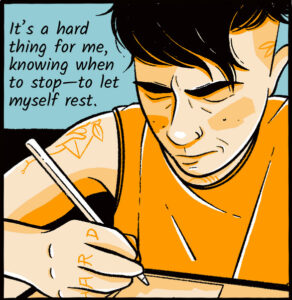
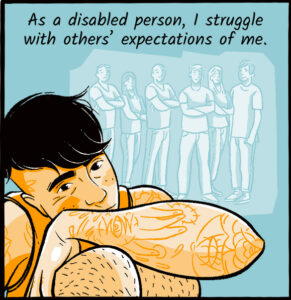
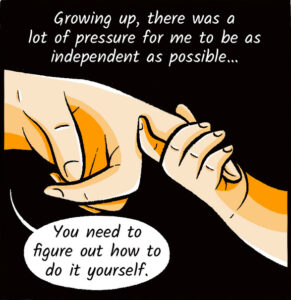
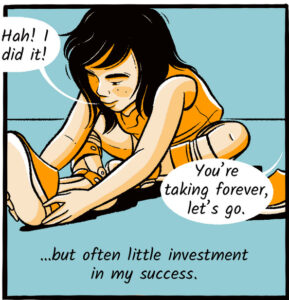
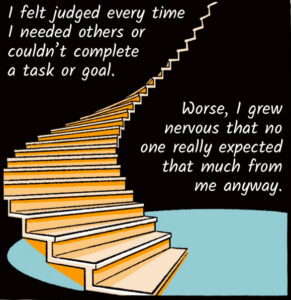
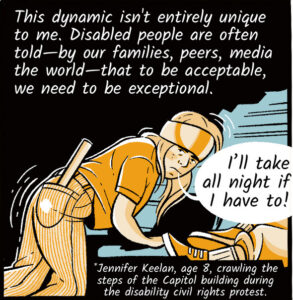
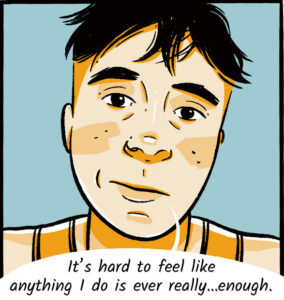
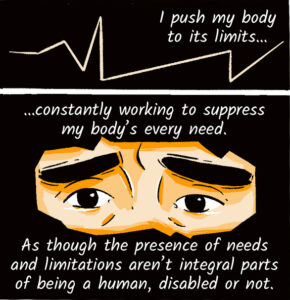
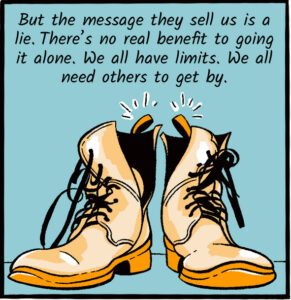
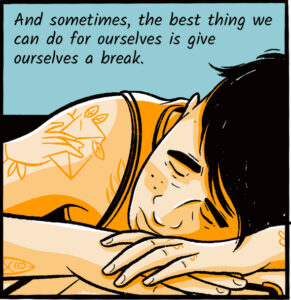
 A. Andrews is a thirty-something disabled queer non-fiction writer and cartoonist. They were named one of The Advocate’s 2021
A. Andrews is a thirty-something disabled queer non-fiction writer and cartoonist. They were named one of The Advocate’s 2021
I’ve been a quadriplegic for almost 3 years. I’ve been dealing with all types of things when it comes to family. I feel like I’m a burden to them. I’m trying to get as far away from them as possible. I’ve been abandoned by them and robbed of cash and other valuables. But yeah I’m very interested in your what you have to offer. Thank you
Dealing with disabilities as complex as those caused by spinal cord injury is not easy. There are so many variables, so “one size does not fit all”. Things to consider are a person’s age at the time of injury, their education level, life experiences, family situation, financial status, gender status, and of course their level and completeness of injury and degree of subsequent disability.
Some people can do incredible things. We call them “super-crips”. Good for them. Then there are others at the opposite end of the spectrum, people who need a great deal of help, God bless them. No one is better or more respected than another. To each their own.
The important thing I stress is to encourage each individual to do the best they can with what they have. A person knows, if they are honest with themselves, as they should be, if they are doing the best they can. That will and should make a person feel at ease and even proud of themselves. Computers and the internet put the world at our fingertips. We can exercise, test and use our brains, which are usually unimpaired, and become very valuable members of society. Today’s disabled are very fortunate to have that opportunity.
Personally, I have enormous respect for anyone and everyone who deals with a spinal cord injury. I know how tough it is and nobody need apologize to anyone for the limitations we face.